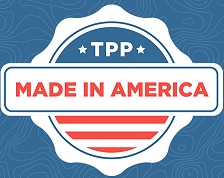Fast Track to Nowhere? Biologic Intellectual Property in the Trans-Pacific Partnership
 The Trans-Pacific Partnership (TPP) trade agreement is in deep trouble. It has taken nine years to finalize this extremely important multilateral deal among the United States and 11 other countries committed to overcoming domestic political obstacles to expand the benefits of free trade.
The Trans-Pacific Partnership (TPP) trade agreement is in deep trouble. It has taken nine years to finalize this extremely important multilateral deal among the United States and 11 other countries committed to overcoming domestic political obstacles to expand the benefits of free trade.
The final text was released publicly November 5, 2015, starting a legally required 90-day countdown before the president could sign it. This waiting period ended with the U.S. delegation joining representatives of the other countries in New Zealand on February 4 to ink the deal.
The deal had bipartisan (but not unanimous) support in Congress. Unfortunately, President Obama did not insist on adequate protection of intellectual property in biologic medicines, alienating Congressional allies and likely dooming the deal to failure, according to an analysis published today by NCPA.
Read the two-page Brief Analysis here.


My preference is to streamline the regulatory process for drug approval. Then give drug makers intellectual property protection that is good for a specific number of years. Then pave the way for generic competition with a streamlined regulatory path to generic approval. That will afford drug companies the exclusivity they need to innovate and discover new drugs. Then it will reward consumers with cheaper versions. What we have now is not good for either drug company or consumer.